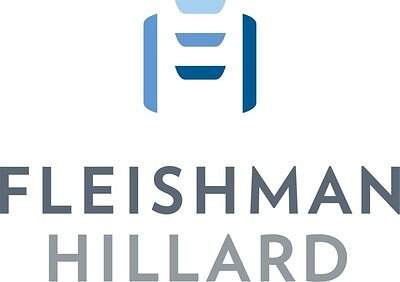
Bay Area Gears Up for Historic Year: Can FH Navigate the Super Bowl & World Cup Tightrope?
The Bay Area is set to host both the Super Bowl and World Cup in 2026. FleishmanHillard’s appointment as communications lead signals a complex undertaking. Will the region reap economic rewards or face growing pains?
Bay Area Gears Up for Historic Year: Can FH Navigate the Super Bowl & World Cup Tightrope?
MOUNTAIN VIEW, Calif. – The Bay Area is preparing for an unprecedented year in 2026, poised to simultaneously host the Super Bowl and the FIFA World Cup. This dual-event undertaking presents a unique logistical, economic, and communications challenge, one the Bay Area Host Committee (BAHC) is tackling with the appointment of FleishmanHillard (FH) as its Official Strategic Communications Consultancy.
The partnership, announced earlier this week, signifies the scale and complexity of coordinating two mega-events concurrently. FH will act as the communications division of BAHC, overseeing all facets of communication from strategy and media relations to crisis management and executive communications. Mitch Germann, FH’s Chief Business Development & Brand Officer, will lead the effort as Head of Communications for BAHC, supported by FH’s San Francisco team. FH President & CEO J.J. Carter joins the BAHC Advisory Board, bringing decades of experience in global sports communications.
A Historic Undertaking, and a Communication Juggernaut
The decision to select FH underscores the need for a seasoned communications partner. The Bay Area, while accustomed to high-profile events, is venturing into uncharted territory. Hosting both events within the same year demands a sophisticated strategy to manage overlapping timelines, diverse audiences (football fans versus soccer enthusiasts), and potentially conflicting priorities.
“This isn’t simply doubling the work; it’s exponentially increasing the complexity,” explains a sports marketing analyst familiar with mega-event planning. “Each event has its own ecosystem, its own stakeholders, and its own set of potential crises. FH’s experience with both the Olympics and the World Cup will be invaluable.”
FH’s track record includes navigating communications during the 2016 Rio Olympics (including a Zika virus outbreak) and the 2018 FIFA World Cup in Russia. However, even with this experience, the Bay Area presents unique challenges.
Economic Promise vs. Community Costs: A Delicate Balance
The potential economic benefits are substantial. Projections estimate a combined economic impact of $3-5 billion for the region. This includes direct spending on lodging, dining, transportation, and event-related activities, as well as increased tourism and brand awareness.
However, the promise of economic prosperity is not without concerns. Community groups are voicing anxieties about potential displacement, rising housing costs, and strains on local infrastructure. The Bay Area already faces a severe housing crisis, and the influx of visitors could exacerbate the problem.
“We’re worried about the long-term effects on our community,” says a local housing advocate. “We need to ensure that the benefits of these events are shared by all residents, not just a select few.”
The BAHC has pledged to address these concerns through community engagement and mitigation efforts. However, striking a balance between economic development and social equity remains a critical challenge.
FH as Power Broker: Managing Reputation and Crisis
Beyond promoting the events and attracting visitors, FH will play a key role in managing the region’s reputation and navigating potential crises. The Bay Area is known for its progressive values and social activism, and any perceived missteps or injustices could quickly ignite public outcry.
“Reputation management is paramount,” explains a communications strategist specializing in crisis communications. “FH will need to be proactive in addressing concerns, transparent in its communication, and responsive to public feedback.”
Potential crises range from logistical challenges (transportation delays, security breaches) to social and political controversies (protests, boycotts). FH’s ability to anticipate and manage these challenges will be crucial to protecting the region’s image and ensuring the success of the events.
“One of the biggest challenges will be juggling the different narratives surrounding each event,” says another industry insider. “The Super Bowl often emphasizes spectacle and entertainment, while the World Cup focuses on global unity and sportsmanship. FH will need to craft a cohesive message that resonates with both audiences.”
Looking Ahead: A Year of Opportunity and Challenge
The appointment of FleishmanHillard marks a significant step in preparing for the historic year ahead. However, success will require more than just effective communication. It will demand collaboration, transparency, and a commitment to addressing the concerns of all stakeholders.
The Bay Area has the potential to showcase its vibrant culture and world-class infrastructure on a global stage. But it must also ensure that the benefits of these events are shared by all residents and that the long-term impacts are positive.
As the region gears up to welcome the world, the stakes are high. The coming months will be a test of its ability to balance economic opportunity with social responsibility and to create a truly inclusive and memorable experience for all.
